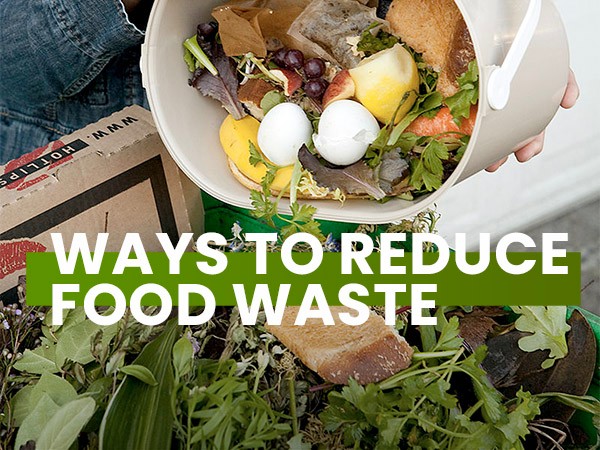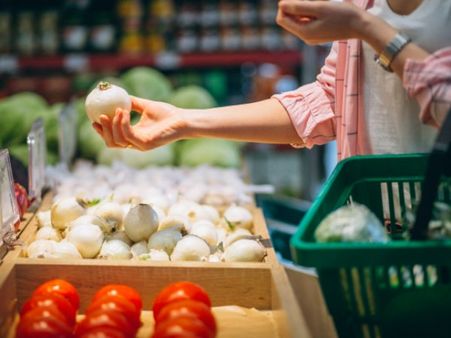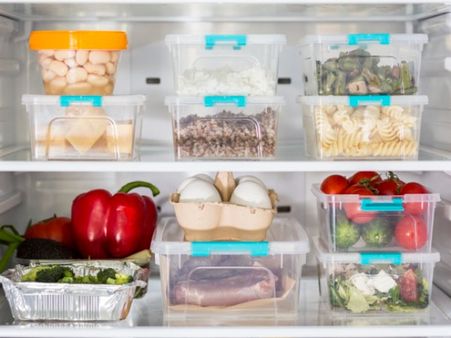Just In
- 2 hrs ago

- 3 hrs ago

- 7 hrs ago

- 12 hrs ago

Don't Miss
- Movies
 Anne Hathaway REVEALS 'Gross' Hollywood Audition Practices, Know What Bizarre Thing Happened With Oscar-Winner
Anne Hathaway REVEALS 'Gross' Hollywood Audition Practices, Know What Bizarre Thing Happened With Oscar-Winner - Finance
 1:1 Bonus Issue: Engineering Stock Turned Ex-Bonus On April 23, Hits New 52-Week High; Gives 268% Returns
1:1 Bonus Issue: Engineering Stock Turned Ex-Bonus On April 23, Hits New 52-Week High; Gives 268% Returns - Education
 Mizoram 10th Results to be declared Soon at mbse.edu.in, Check the Tentative Date
Mizoram 10th Results to be declared Soon at mbse.edu.in, Check the Tentative Date - News
 Not Hardik Pandya, Rohit Sharma Is Still Captain For Many Mumbai Indian Players: Irfan Pathan
Not Hardik Pandya, Rohit Sharma Is Still Captain For Many Mumbai Indian Players: Irfan Pathan - Technology
 Meta Quest OS is now Opened to Third-Party Hardware Manufacturers: Rebranded as Meta Horizon OS
Meta Quest OS is now Opened to Third-Party Hardware Manufacturers: Rebranded as Meta Horizon OS - Sports
 IPL 2024: 'Sunil takes offf the pressure from Me' - KKR star Phil Salt on dynamic partnership
IPL 2024: 'Sunil takes offf the pressure from Me' - KKR star Phil Salt on dynamic partnership - Automobiles
 Suzuki Access Electric To Electrify The Indian Scooter Market By 2024
Suzuki Access Electric To Electrify The Indian Scooter Market By 2024 - Travel
Kurnool's Hidden Gems: A Guide To Exploring India's Lesser-Known Treasures
Do You Constantly Throw Away Food? Here Are 21 Tips To Reduce Food Waste
From the time we were in schools, one of the most important lessons taught to us is never to waste food. Your parents and teachers may even have gone to the extent of guilt-tripping you with the term 'world hunger,' and the countless number of people suffering from a regular supply of food.
While it may have seemed to be a bit over the top for you then, the statistics and surveys even in the year 2020 shows that 8.9 per cent of the global population do not have food to eat [1]. Around the world, more than enough food is produced to feed the global population, yet it does not reach all the mouths to be fed.

Although there was a gradual and evident drop in world hunger in the last decade, the numbers seem to rise with days now [2]. You may think it's not much harm you are doing when you throw out that leftover food, but food waste is actually a bigger problem than you may realise.

It is easy not to waste food. We have listed out several easy and quick tips in this article that can help you reduce and eventually prevent the 'habit' of wasting food.

How Can I Reduce My Food Waste?
1. Shop smart and buy less: The best and easy way to reduce or avoid food waste is to buy less. The vegetables, fruits and other food items may look too tempting at the supermarket but control the urge and try to shop every week to prevent buying too much and eventually having to throw it away. Also, make it a habit to use up all the food you purchased during the last trip [3].
2. Make a grocery list: Making a shopping list of things needed can avoid the mistake of buying foods that are already in the home. On the day you decide to go food shopping, take an inventory of the food in the house [4]. This can help in avoiding the purchase of unnecessary foods and cut back on potential food waste.
3. Store your food the right way: One of the most common reasons for food waste in improper storage [5]. Food items such as fruits and vegetable, if not properly stored, can lead to premature ripening and rotting. Certain food items have to be stored separately so as to avoid amalgam of gases such as the ethylene gas (promotes ripening in foods), thus, aggravating the rotting of foods.
Potatoes, tomatoes, garlicand onions should never be refrigerated but kept at room temperature [6]. Foods that produce ethylene gas while ripening, such as bananas, tomatoes, peaches, avocados etc. should be kept away from potatoes, apples, leafy vegetables and bell peppers (ethylene-sensitive) [7]. When storing cooked food, place it on shelves above raw foods and in sealed containers to retain freshness.
4. FIFO is the answer: FIFO stands for ‘first in, first out.' The next time you organise your kitchen and fridge, instead of pushing the ‘old' foods into the back and arranging the freshly bought ones in front, place the newly bought foods at the end of the cupboard or fridge. This will encourage you to use up the food in the front row first, reducing waste [8][9].
5. Keep an eye on fresh foods: That is, write down the foods that can go bad quickly. This will either help you in avoiding buying the specific food item or remind you to use it up quick (if you have already bought it).

...
6. Freeze the food: When you freeze your food, it helps to preserve them for later use and prevent them from spoiling [10]. Many fresh fruits and vegetables keep well when frozen, reducing food waste. You can freeze leftovers from a meal, soups, herbs, cut vegetables etc.
7. Eat leftovers: Trust me, leftover food is the best. Instead of throwing out that extra food, store it in a container and keep it in the fridge or freezer. Most leftover, when stored properly, can be used f0r 1-2 days [11].

8. Understand the food: One of the other best ways to reduce food waste is to understand your food. Including parts of foods that are not usually used is a great and fun way to reduce food waste. For example, cauliflower leaves, broccoli stem, pumpkin skin are all not just healthy but also tasty. If fruits or vegetables have become squishy, make pulps or sauces with it.
9. Save the coffee grounds: If you are someone who drinks ground coffee (non-instant), you will be throwing out used coffee grounds at least twice a day. Instead of throwing the coffee grounds into waste, they can be used as fertiliser for plants and as a natural mosquito repellent [12][13]. Studies point out that sprinkling coffee grounds in the grass can prevent mosquitos from laying eggs.
10. Bring your lunch (when offices re-open): Most of us depend on takeout foods or restaurants for our lunch at work. Packing your lunch to work every day not only reduces the chance of food going to waste but also help reduce your carbon footprint [14].

...
11. Make stock at home: Instead of throwing out the vegetable scraps like the tops, stalks, peels and any other (usable) bits, make a vegetable broth at a time with these. All you need to do is add some olive oil and water, then let it simmer for some time to get a flavoursome and aromatic vegetable broth.
12. Plant the seeds: Having your own vegetable garden is indeed a great feeling, a consciously rebellious step towards disregarding the consumerist agenda. It is easy to grow your own vegetable-herb garden - all you need is some soil and some pots, and you are set to go. From today, instead of throwing out the pumpkin, tomato and other seeds, plant them in your balcony garden [15].
13. Pickle and preserve: Food preserving techniques such as pickling, fermenting, drying, canning, freezing and curing can help preserve the food, making it last longer and reducing the need to waste food [16]. The best part about learning to preserve is that not only are you saving money, and you are also reducing your carbon footprint [17].
14. When eating out, personalise the order: Asking the restaurant to skip adding ingredients you do not like or cannot eat is an easy way to reduce food waste [18]. While ordering food, respectfully direct the server; and chose to eat in restaurants that can tailor-make your food. In addition, this can also ensure the freshness of the food you have ordered.
15. Control the portions: Another way to reduce or avoid food waste is to cook exactly what you could eat. Being more mindful of how hungry you are, and practising portion control not only reduce food waste but also promotes healthy eating [19].

...
16. Skip the beauty product, go natural: You can make use of the overripe fruits and vegetables to pamper yourself. Not only are they chemical-free, but these natural face/body masks can also help reduce food waste while making your skin shine bright. Overripe avocados, tomato, coffee grounds etc. can be used as face scrubs/packs [20].
17. Compost the rest: Creating a compost out of stems, peels, and unusable bits of food is one way to help reduce waste [21]. By turning these scraps into nutrient-rich fertiliser, you are reducing your contribution to the landfills. If you do not have the facility to make compost at home, do contact your municipalities for information.
Some of the other ways through which you can reduce food waste are as follows:
•
Monitor
what
you
throw
away
(to
understand
your
eating
habit)
•
Donate
the
food
•
Understand
expiration
dates
(if
stored
properly,
many
foods
can
be
safely
used
past
expiration
dates)
•
Share/split
the
food
(if
eating-out)

The Harm Of Food Waste And Climate Change
More than one-third of all food produced globally is wasted or spoiled. Reports point out that nearly 1.3 billion tons of food waste are produced every year. It is not just money you are losing but the food you threw away because you cooked a lot extra s sent to landfills, where it rots and produces methane gas, which is the second most common greenhouse gas. That means food waste equals climate change [22].
Food waste contributes towards the wastage of a considerable amount of water, that is, 24 per cent of all the water used for agriculture is lost through food waste every year - which makes about 170 trillion litres [23]. While us, the average consumer is not a sizeable environmental polluter compared to large corporations, taking it upon yourself to make changes like these can put you away from contributing towards the problem of pollution, climate change and ecological imbalance [24].
By reducing your contribution to food waste, you are saving money, reducing methane emissions, conserving energy and resources and supports the community by feeding the hungry (make sure the food is fresh, they too are no different from you - if the food is not fresh for you, it is not fresh for them as well) [25].
Becoming more connected to your food and, your wants and needs will help you avoid waste, and bring you one step closer to being a conscious citizen.

On A Final Note…
While buying in large quantities may seem like the best option to save money and reduce plastic packaging, when you routinely throw away the food, you are not saving away any money there. To reduce plastic waste, bring your own shopping bag and refuse when plastic bags are offered.
By managing food sustainably and reducing waste, each of us can contribute towards reducing the issue of food waste and the resultant issues such as pollution, methane gas emission etc. Planning, prepping, and storing food, along with the tips as mentioned above, can help you reduce food waste.
-
 home n gardenExclusive: This Bengaluru-Based Green Initiative Is Turning Christmas Decorations Into Plants
home n gardenExclusive: This Bengaluru-Based Green Initiative Is Turning Christmas Decorations Into Plants -
 decorEco-Friendly Homes, Easy To Built
decorEco-Friendly Homes, Easy To Built -
 improvement'Paper Walled Homes' For Homeless
improvement'Paper Walled Homes' For Homeless -
 insyncWaste Management At Naini Lake
insyncWaste Management At Naini Lake -
 insyncEx-Bond Honoured For Youth Charity
insyncEx-Bond Honoured For Youth Charity -
 marriage and beyondHoneymoon Earned By Collecting Garbage
marriage and beyondHoneymoon Earned By Collecting Garbage -
 healthWhen Is Total Solar Eclipse 2024? Let's Debunk 3 Common Food Myths About Surya Grahan
healthWhen Is Total Solar Eclipse 2024? Let's Debunk 3 Common Food Myths About Surya Grahan -
 insyncCelebrity Chef Ajay Chopra Launches Plaka, From Potlam Biryani To Taco-Bab, Get Ready To Taste Heaven On Plate
insyncCelebrity Chef Ajay Chopra Launches Plaka, From Potlam Biryani To Taco-Bab, Get Ready To Taste Heaven On Plate -
 insyncThese Are The 10 Oldest Food In The World And We Still Love To Eat Them Today
insyncThese Are The 10 Oldest Food In The World And We Still Love To Eat Them Today -
 insyncValentine's Day 2024: 10 Hottest Indian Food Jodis That Are A Must Have If You Are Celebrating Love
insyncValentine's Day 2024: 10 Hottest Indian Food Jodis That Are A Must Have If You Are Celebrating Love -
 insyncRose Day 2024: Easy To Make Rose-Themed Cake To Woo Your Valentine On V-Day
insyncRose Day 2024: Easy To Make Rose-Themed Cake To Woo Your Valentine On V-Day -
 health10 Cancer Fighting Foods That Help That Play Significant Role In Supporting Body's Natural Defences
health10 Cancer Fighting Foods That Help That Play Significant Role In Supporting Body's Natural Defences


 Click it and Unblock the Notifications
Click it and Unblock the Notifications



